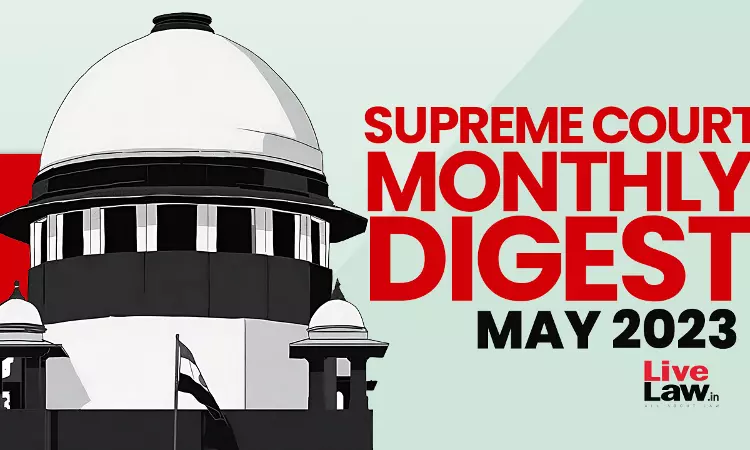- Home
- /
- Supreme court
- /
- Supreme Court Monthly Digest May...
Supreme Court Monthly Digest May 2023
LIVELAW NEWS NETWORK
29 Sept 2023 2:19 PM IST
SUBJECT WISE INDEXAdverse PossessionThe onus to prove acquisition by adverse possession shifts on the defendant, once the title of the property has been upheld in the name of Plaintiff by a judgment/decree in an earlier suit between the same parties. (Para 7) Prasanna v. Mudegowda, 2023 LiveLaw (SC) 381Amravati Land ScamThe Supreme Court set aside the High Court order which stayed the probe...
Next Story



